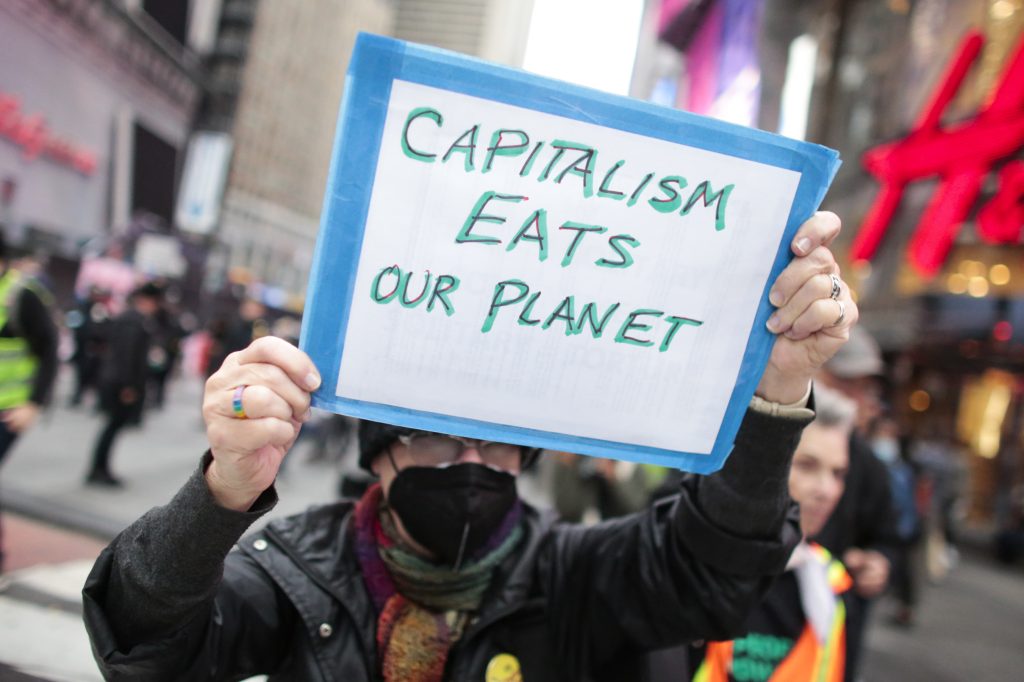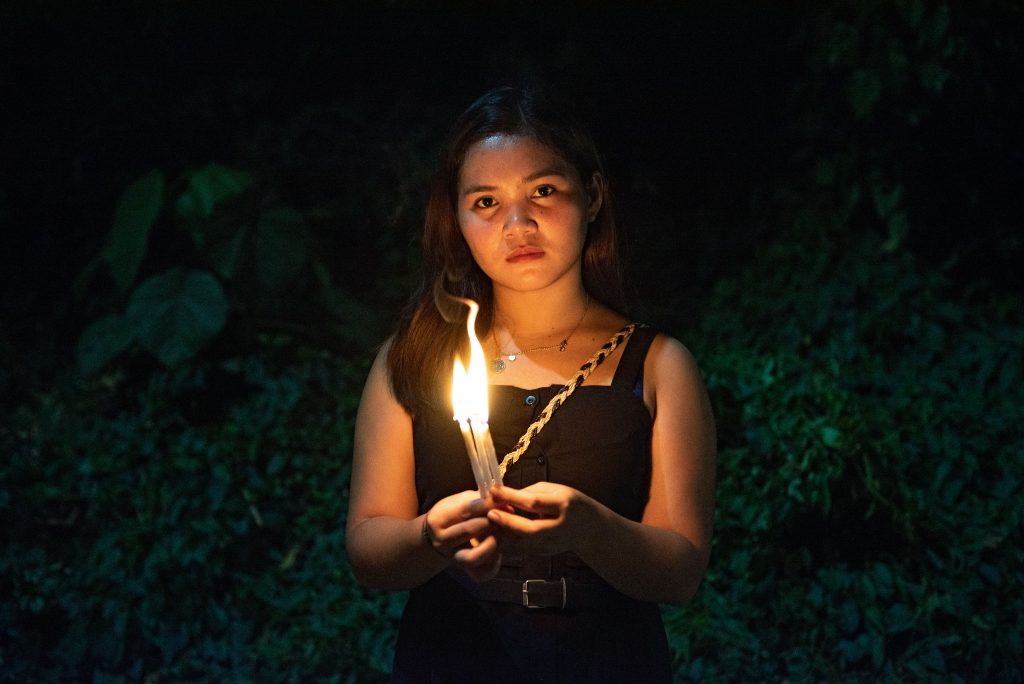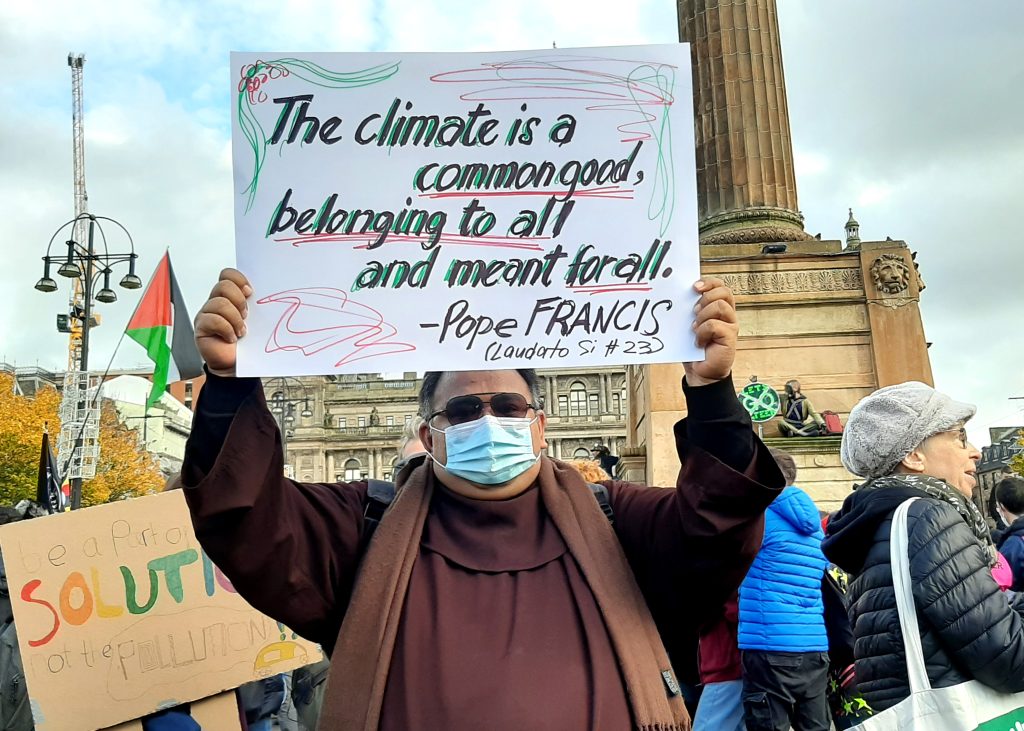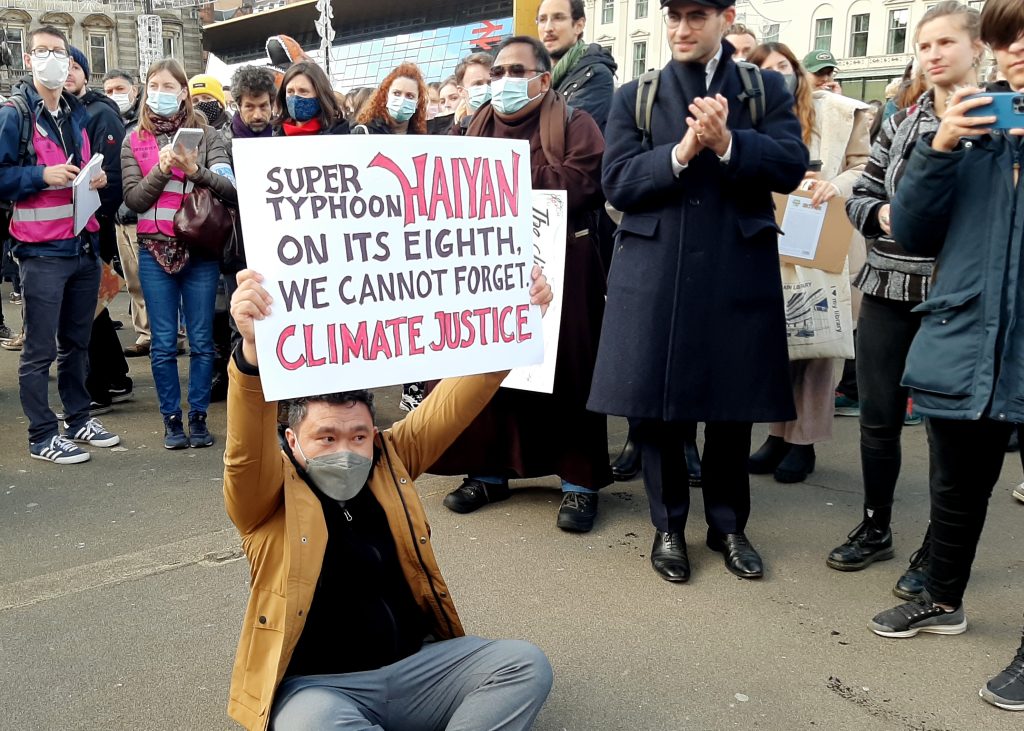
Marinel Ubaldo, 24, from Eastern Samar, is still seeking justice for her family and community eight years after the devastation of super typhoon Haiyan.
“We are still shouting for justice for our friends, relatives, and families who lost their lives because of climatic disasters,” she said at a side event at COP26.
Haiyan, the second strongest landfalling tropical cyclone on record, killed at least 6,300 people and destroyed US$2.2 billion worth of properties.
To this day, more than a thousand bodies still have not been recovered, and rehabilitation projects are still unfinished in some areas.
With greenhouse gas emissions and global temperatures still increasing, more extreme weather events like Haiyan could be on the horizon.
For Ubaldo, this is a future that the Philippines does not deserve.
“Filipino communities at the climate frontlines should not be made to wait for justice as every day of delay means another day of compounded human rights harms in the context of climate change,” she said.
Ubaldo also emphasized what is at stake for her generation.
“The Filipino youth are fighting for a future not riddled with anxiety and fear that another Haiyan might come anytime to threaten our loved ones, lives, and dreams,” she said.
Among her main advocacies at the Glasgow climate summit include calling on governments to scale up solutions to avert or minimize loss and damage.
While it is not among the highlighted issues leading up to the negotiations, Ubaldo said that delaying actions would cause further harm to vulnerable communities.
“We should take COP26 as an opportunity to champion the loss and damage agenda, address social protection and risk management that avert loss of lives and assets, and fight for financial and technical accountability in the name of climate justice,” she said.
Among the main calls of civil society groups at COP26 involve the liability of corporations that have released over 70 percent of all greenhouse gas emissions.
The role of these so-called “carbon majors” in causing the climate crisis has been established by the National Inquiry on Climate Change conducted by the Philippine Commission on Human Rights.
At the previous COP in Madrid, the commission announced that corporations can be held legally liable for human rights violations from damages through global warming.
Ubaldo, who was among the petitioners that led to the inquiry, is still waiting for the final report and the precedent it could set to end the era of fossil fuels.
“Holding these fossil fuel and cement corporations responsible for their climate-destructive activities that ruin our future is a good start in achieving climate justice,” she said.

Faith in action
Father Angelito Cortez, a Filipino Franciscan based in Rome, believes that leaders at COP26 should listen to stories being told by activists like Ubaldo.
“Difficult moments like this present us opportunities that must not be wasted, an opportunity to help, be more empathetic, that this approach can guide us to a brighter horizon,” he said.
Father Cortez represented both his order and the Philippine civil society during the Glasgow climate summit. He engaged in ecumenical gatherings and interfaith speaking engagements, being inspired by the Catholic doctrine for taking care of the environment.
In his engagements, he emphasizes the need for “a strong sense of being a citizen of the world, that we care for Mother Earth, that we’re not far-sighted, and we must not talk about 2040 or 2050. We must talk about it now.”
Catholic delegates at COP26 are guided by the leadership of Pope Francis who called for a renewed sense of shared responsibility to spur global climate action.
In a recorded message, the pope emphasized that the decision-makers present in the two-week conference “are urgently summoned to provide effective responses to the present ecological crisis and in this way to offer concrete hope to future generations.”
Faith serves as a platform to convince peoples of the reality of the climate crisis and the plight of the vulnerable communities, said Father Cortez.
He said that “this platform can be used to encourage not only our leaders, but the citizens of the world in general.”
“We need a radical decision in talking about climate change, especially when pursuing climate justice,” said the priest.
On the outcomes of COP26, he criticized the lack of sufficient progress in pursuit of climate justice. He called for stronger emphasis on the global recognition of human rights vis-a-vis climate change, which he felt was lacking on the decision text.
The lack of commitment for funding for loss and damage victims is widely criticized among observers from vulnerable nations.
Nevertheless, Father Cortez commended the Scottish government for pledging GBP2 million to aid those severely affected by climate disasters, the first among the world’s governments.
“This is hope,” he said, adding that the example of the Scottish government “is an inspiration that developed countries can also do the same.”
Regardless of the outputs of the Glasgow negotiations, he saw the importance of representation in terms of pushing forward the climate agenda.
In a COP derided for the lack of inclusivity for participants from the Global South, the priest realized that advocates from different nations found themselves discussing more similar stories and experiences in the pursuit of climate justice.
“It’s about listening and dialogues. It’s about learning from each other. It’s not about who will be the champion or at the forefront. It’s a matter of acknowledging one’s presence,” he said.

Enough of ambitions
Rodne Galicha, lead convenor of civil society network Aksyon Klima Pilipinas, was dissatisfied with the Glasgow Climate Pact.
After two years of anticipation for the most critical negotiations since the adoption of the Paris Agreement, he was dissatisfied with the decision text filled with “recognizes” and “urges.”
Even with all the new pledges made at COP26, global warming is still projected to exceed the 1.5 degrees Celsius target, which would make it difficult for vulnerable countries like the Philippines to adapt to climate change impacts.
This could only lead to worsening injustices experienced by marginalized communities without meaningful global interventions, said Galicha.
“We can still see bigger countries manipulating the outcomes of COP,” he said.
The lack of inclusivity and equity at COPs, enhanced this year by COVID-related restrictions, exists not just among countries but even between smaller groups and large networks in the civil society constituency.
This, however, did not stop Galicha and more than 20 other Filipino non-state advocates from representing the voices of their partner organizations and communities in Glasgow.
“We’re here because we wish to make the governments accountable to what they have done,” he said.
Citing his experiences from previous COPs and his engagements with Philippine negotiators, he claimed that this year’s delegation “did not represent the grassroots or the masses” when creating inclusive positions or stands representative of national interests.
On loss and damage, Galicha agreed with Father Cortez on the failure to establish a financing mechanism to aid victims of climate disasters.
He also panned the Philippine delegation for its lack of significant action on the issue, claiming that it “should have led all these conversations on loss and damage, even in bilateral discussions.”
However, he praised the G77 negotiating bloc of vulnerable countries for pushing for its creation, and the Scottish government for its funding pledge, calling this development the most positive outcome of COP in terms of climate justice.
“It’s small, but it’s a spark of hope for other countries to follow. So far, they did not do so,” he said.

After Glasgow
For Filipino delegates at COP26, their pursuit for climate justice will continue in their respective campaigns in the coming months leading to the next negotiations in Egypt.
Ubaldo said one of the most important next steps involves drastic reductions in greenhouse gas emissions and making sure the big polluters are held accountable.
“We demand urgent action and clear actionable solutions from the carbon majors,” she said.
With both the climate crisis and the COVID-19 pandemic intensifying the “cries of the earth and the poor,” Father Cortez called on developed countries to “look at the other side, not only economy, not only profit, not only their own motives, but look at what’s happening in the developing countries”.
He also supported stronger protection of environmental defenders, especially in the Philippines, saying that “climate activism is not terrorism.”
Allow our brothers and sisters who are good at defending Mother Earth or using their craft as climate scientists to exercise their potentials and capabilities and not tag them as terrorists,” said the Franciscan priest.
Galicha pledged to remain steadfast in the commitment of Filipino civil society to monitor if governments and businesses will follow through with their promises at COP26.
“The victory today is that we’re here. We recognize there’s always that big gap, and that big gap will be filled in by all of us,” he said.
John Leo is a Climate Tracker COP26 virtual fellow. He is also the deputy executive director for programs and campaigns of Living Laudato Si’ Philippines, and a climate journalist since 2016.
Source: Licas Philippines
0 Comments